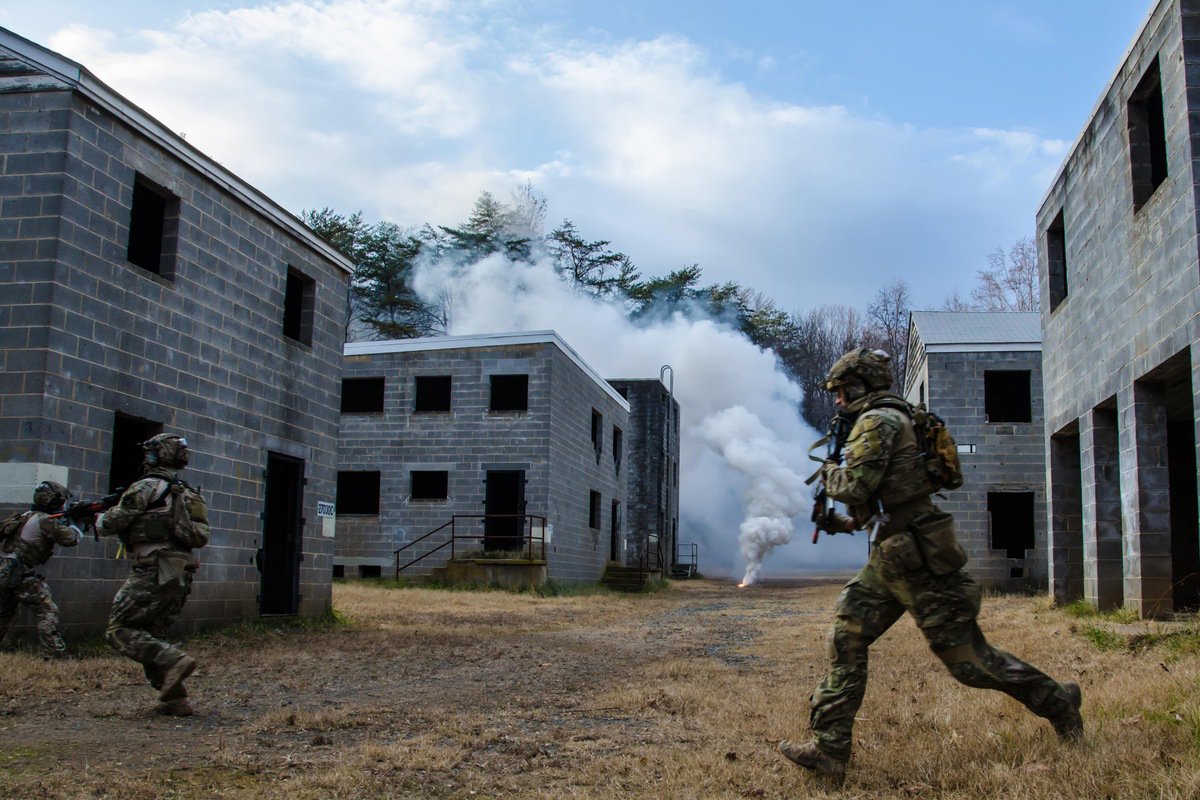
FBI Hostage Rescue Team operators participate in an urban-assault training exercise. Photo courtesy of the FBI.
At the 1972 Munich Olympics, 11 Israeli athletes were taken hostage and later murdered by Palestinian terrorists. In response to the terrorist threat, the FBI set up the first full-time civilian counterterrorism team.
Fast forward to 1983: Special agents trained and were selected to form a novel tactical unit known today as the FBI’s Hostage Rescue Team, or HRT.
“When Los Angeles won the nomination for the 1984 Olympics, the question was, ‘Who would handle an event such as Munich?’ And there weren’t a lot of good answers,” former FBI Deputy Director Sean Joyce said in 2013.
The US military has its restrictions stateside. Since the Posse Comitatus Act passed in 1878, military action against domestic threats without presidential or legislative approval has been illegal. The FBI’s HRT filled that void.
These days, FBI HRT special agents and operators can deploy within four hours of notification anywhere in the US to respond to terrorist incidents, hostage situations, and major criminal threats.
“We have the capability to do dive operations, sub-surface delivery, waterborne, a full range of overland mobility, meaning we can go overland through the desert, arctic cold-weather terrain,” one HRT operator said in a video posted to YouTube. “The snowmobiles, four-wheelers, we have gun trucks and all sorts of other platforms that allow to access pretty much any environment here in the United States.”
Some major incidents to which the FBI’s HRT has responded include a 1991 maximum-security-prison riot in Alabama, the hijacking of a German-owned vessel by Somali pirates in 2011, and even the Boston Marathon bombing manhunt in 2013.
“They’re working with the counterterrorism units in all the military branches,” Joyce said. “They travel around the world and train with some of their counterparts. So they really are afforded the resources and the ability to acquire and really maintain a level of training that is impossible at the other levels.”
Read Next:

Matt Fratus is a history staff writer for Coffee or Die. He prides himself on uncovering the most fascinating tales of history by sharing them through any means of engaging storytelling. He writes for his micro-blog @LateNightHistory on Instagram, where he shares the story behind the image. He is also the host of the Late Night History podcast. When not writing about history, Matt enjoys volunteering for One More Wave and rooting for Boston sports teams.
BRCC and Bad Moon Print Press team up for an exclusive, limited-edition T-shirt design!
BRCC partners with Team Room Design for an exclusive T-shirt release!
Thirty Seconds Out has partnered with BRCC for an exclusive shirt design invoking the God of Winter.
Lucas O'Hara of Grizzly Forge has teamed up with BRCC for a badass, exclusive Shirt Club T-shirt design featuring his most popular knife and tiomahawk.
Coffee or Die sits down with one of the graphic designers behind Black Rifle Coffee's signature look and vibe.
Biden will award the Medal of Honor to a Vietnam War Army helicopter pilot who risked his life to save a reconnaissance team from almost certain death.
Ever wonder how much Jack Mandaville would f*ck sh*t up if he went back in time? The American Revolution didn't even see him coming.
A nearly 200-year-old West Point time capsule that at first appeared to yield little more than dust contains hidden treasure, the US Military Academy said.












